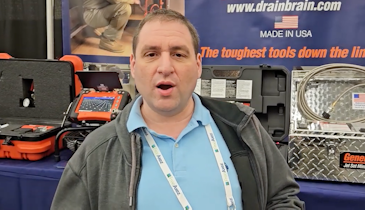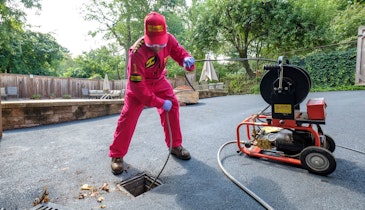I’ve always thought that it was our job to be the expert in plumbing and inform the public of everything they want to know about our trade. Now don’t get me wrong, some of our customers truly don’t care what it’s like to be a plumber. All they want is for you to be on time and fix their problem.
However, there are many of our customers that really appreciate every word that comes out of our mouth. When they listen, I like to bring up how they can save money and get some preventive maintenance done all in one shot.
TURNING WATER OFF AND PERFORMING MAINTENANCE
I don’t know about you, but I have this incredible fear of a waterline leaking or a toilet running the entire time I’m on a vacation. Between having property damage or just putting all that extra water in my private onsite wastewater treatment system system, I always turn my water off if I’m going to be gone for over 24 hours.
Now since my water is off, is there anything I should be doing to my plumbing system that will help with preventive maintenance? Now is a great time to be replacing filters, whether for a RO system or an entire house.
The one piece to the plumbing system that often gets overlooked until it’s too late is the water heater. Is there anything that I can do with my water heater that doesn’t take much time for maintenance that I can do prior to a vacation? This is something we can sell as a service or have the owners do themselves. Water heaters require annual drainage to help prevent buildup in the water heater itself making them more efficient. So, prior to a vacation is a great time to drain down the water heater. And with what we know about water age, it’s a great idea to start with fresh water when we come back from vacation.
WASTE OF ENERGY?
I know what you’re thinking, isn’t that a waste of water and energy? Yes, technically it is a waste of water. In the future, I will talk about how water age affects our health maybe more than we know or want to know. Now let’s truly look at the energy cost. What is the temperature loss per hour on a no-flow water heater? While there is no exact number for degree loss per hour, the approximation is about 1 degree per hour. We’ve come a long way with the insulation of a water heater.
So, if you are on vacation for one week, the degree loss during that time would be 168 degrees, since you’re gone 168 hours. If the temperature drop between firing cycles is 10 degrees, from off at 120 degrees and on at 110 degrees, that means your water heater will turn on approximately 17 times when there is a no-flow situation. This is also not including a circulation pump and return line that will lose Btus and make the water heater cycle even more times. You should always turn it off before you leave for a vacation.
What is the startup gas usage to raise the water temperature 60 degrees? I am from Wisconsin where the incoming water is usually around 55 degrees.
Fifty gallons of water heater weighs 415 pounds, one Btu will raise one pound of water one degree, so to heat the 50 gallons of water to raise the temperature 60 degrees will use approximately 24,900 Btu. If you leave your water heater on it will cycle 17 different times and use about 4,150 Btu per cycle using 70,550 Btus when no one is even home. Six different cycles would equal the same Btu’s as one cycle of raising water temperature 60 degrees. That would be the same as 2.5 days. So, once you are on a vacation and have a no-flow condition of 2.5 days or greater it would be more cost efficient to turn off the water heater and once you get home let it fire up and raise the temperature 60 degrees in one cycle.
OTHER CHECKS AND MAINTENANCE
When you are draining down a water heater it’s a great time to actuate the temperature and pressure relief valve. Water heaters are required to have a T&P relief valve for safety. In order to maintain the safety aspect, it is required to be opened at least annually. It should also be replaced every three to five years. I know that some plumbers never want to actuate them because sometimes they will not reseat themselves properly and will leak. I’m here to tell you that it’s way more important to see if they work and replace as necessary if it leaks rather than have it blow through the roof like a rocket.
I do mention to my customer what an anode rod is and that it should be checked annually and replaced as needed. When I explain that this is the sacrificial rod that prolongs the life of the tank and that it does fail, they usually want this done. This is one part of the maintenance that I usually tell them needs to be done by a professional.
Since I live where we get a good amount of precipitation annually, I always make sure to check my groundwater sump pump. I check to see if the float can freely move up and down without anything adversely affecting it. I also pour a 5-gallon bucket into the sump to see if it turns on and listen to what it sounds like when it’s running. I listen for anything other than a perfect hum.
Most water treatment devices are demand-initiated which shouldn’t be a problem if we turned water off prior to vacation, however we may need to turn off the manual day override, most are preset at 14 days but you never know when the last cycle was.
------------
Ken Dickerson teaches plumbing apprenticeship at Waukesha County Technical College in Waukesha, Wisconsin. He is the 2022 Associated Builders and Contractors of Wisconsin Instructor of the Year. He is also a U.S. Air Force veteran and also a proud husband and father of two. To reach Ken, email editor@plumbermag.com.






